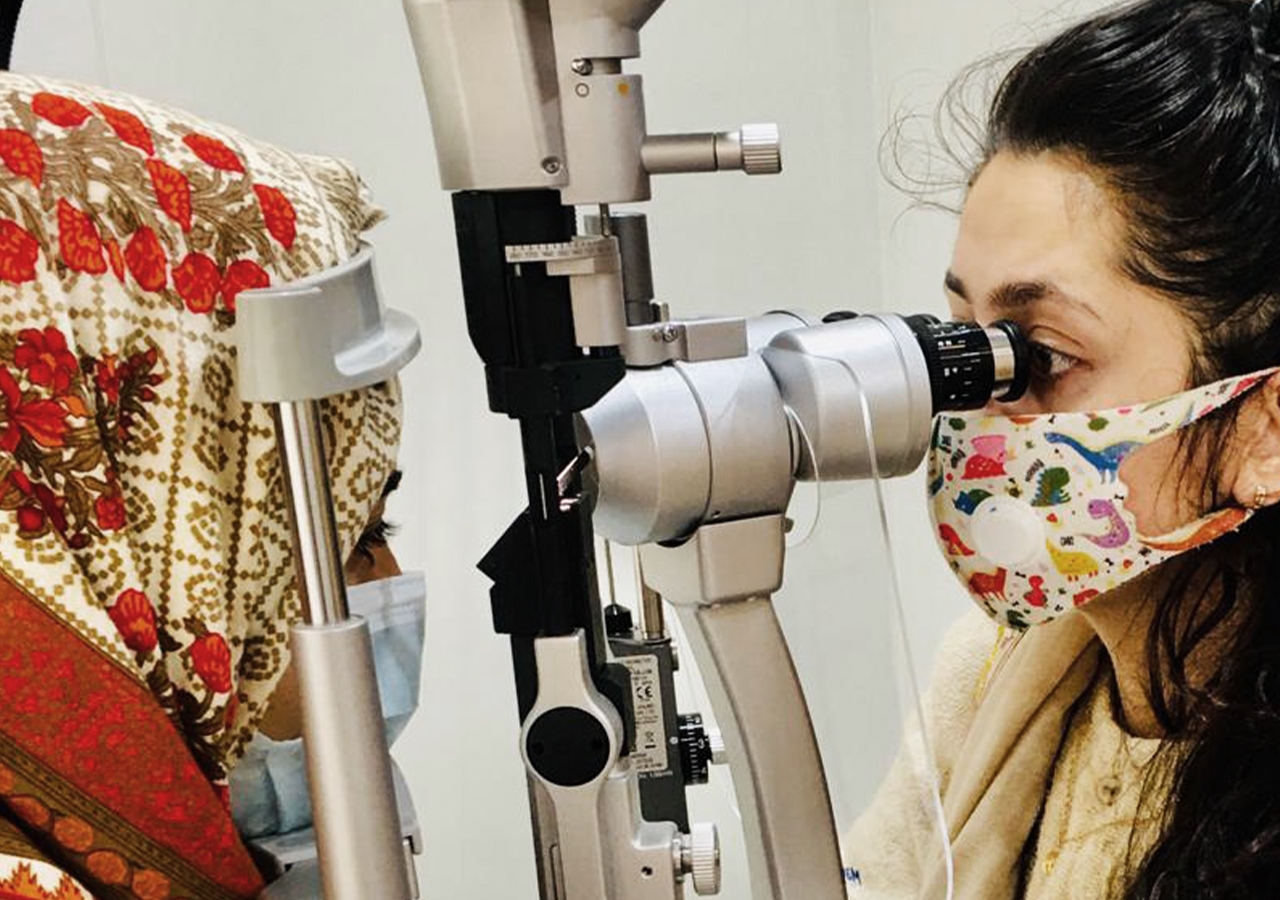To better understand and reflect on her journey thus far, Dr. Sirang sat down with The IsmailiPakistan to enlighten us on the opportunities, as well as the trials and tribulations, she faced along the way.
1. Tell us a little about your early life. What motivated you to join the medical profession and ophthalmology?
I belong to the Yarkhun Valley of Upper Chitral and started my early education from Pamir Public School, Booni. We shifted to Mardan when I was in class nine and that is where I completed my Secondary School Certificate (SSC) and Higher Secondary School Certificate (HSSC). Going into the medical profession was my mother’s wish that, later on, became my own. I joined ophthalmology because I was intrigued by the microscopic surgeries and instant results. Also, it has lots of physics in it. Physics and math were my favourite subjects during my school days.
2. What was your purpose behind writing Optics Made Easy: Last Minute Review of Clinical Optics? Anything you would like to share about the experience of writing the book?
Optics is a field of physics and, as ophthalmologists, we are required to study it since it plays a vital role in understanding how different optical instruments (lenses, slit lamps, etc.) function. While preparing for my optics exams, I made notes for revision, with the aim of understanding complex terms and methodologies in optics with easy tools, bullet points and diagrams. Once I was done with my exams, I thought to convert my notes into a short revision book and published it on Amazon. The aim was to help students understand optics with ease, hence the title, Optics Made Easy. Both my parents are educationists and avid readers. My father is a poet/writer and has written a few books as well. Therefore, from a very young age, I have been interested in reading and writing. As a kid, I used to write stories for newspapers and magazines.
3. How does it feel to receive recognition and accolades for your book?
I am thankful to Allah for His blessings. It is a humbling experience and I am thankful to all the people who have supported, appreciated, encouraged and celebrated my success.
4. What does your hometown Yarkhun mean to you? How important is it for you to give back to your community?
Yarkhun defines my roots. These are the roots that gave me the energy to grow and at the same time helped me to remain connected with my people. I believe that it is our responsibility to give back to our society. If we, the educated and blessed ones, do not, then who will?
5. After graduating from AKU, you spent two years serving the community in Chitral. Tell us a little about this time and how you served the people of Chitral?
After completing my MBBS, I decided to serve my people in Chitral and joined the Aga Khan Health Services. During those two years, I served as a Medical Officer in Booni Medical Center and also conducted clinics in different regions of Chitral. The aim was to offer quality healthcare services to the outlying areas of Chitral by visiting remote sites and offering them consultation, screening and awareness of various silent but potentially devastating diseases such as diabetes, blood pressure, high lipids and mental disorders.
6. What major challenges did you face during this journey and how did you overcome them?
Challenges are a part of life, and yes, I did experience my share of challenges during this journey, but they made me work harder. I had a very clear objective in my mind from the very beginning and was therefore prepared to face any obstacles, be it shattering the glass ceiling by getting admission in AKUH, trying for a fellowship programme in Ireland, managing the work-life balance as a mother or defying the gender-specific roles set by our society. I truly believe that having a clear goal in mind helps one mitigate challenges effectively to achieve one’s goals.
7. What message would you like to give to the Jamati youth of Chitral and Pakistan?
I would humbly like to tell the youth three things. First, set high goals for yourself. Second, believe in yourself and work hard. Third, have a growth mindset but stay humble and remain connected with your roots.










